Leading Japanese companies, NYK Line (NYK), NYK Bulk & Projects Carriers (NBP), TSUNEISHI SHIPBUILDING Co., Ltd. ("TSUNEISHI SHIPBUILDING") and British renewable energy business, Drax Group (Drax), have signed a new memorandum of understanding (MoU) to develop both the world’s first biomass-fuelled ship (bioship) and the technology that could power it.
Rendering of bioship
Biomass is playing a growing role in Japan’s transition from fossil fuel power generation to low carbon and renewable electricity, and the country’s demand for biomass pellets, sourced primarily from North America and composed of sawmill and forestry residues, is increasing.
Drax produces biomass pellets in both the US South and Canada. The company has a longstanding relationship with NBP which transports its pellets to Japan.
These pellets are currently shipped through smaller handysize bulkers, which, due to the limited size of their fuel tanks, have proved challenging to switch to lower emission fuels, such as ammonia.
Through the MoU, which was signed at the British Embassy in Tokyo, the companies will initially conduct research to develop the new shipping technology, an on-board biomass fuel plant, which would be required to power a bioship. The four companies are exploring how other renewable technologies could be used to reduce both the emissions and fuel costs of shipping biomass.
From left,
Kenichi Shibata: Managing Executive Officer/General Manager of Design Division, TSUNEISHI SHIPBUILDING Co., Ltd.
Paul Sheffield: Chief Commercial Officer, Drax Group
Masashi Suda: President, Chief Executive Officer, NYK Bulk & Projects Carriers Ltd.
Shinichi Yanagisawa: Executive Officer, NYK Line
The biomass fuel plant would use a gasifier to combust biomass at high temperatures and create and contain gases including carbon monoxide, hydrogen, and methane. These gases would then be used to power a generator which could propel the bioship and also provide a proportion of its internal power.
Biomass fuel plant system
The installation of a biomass fuel plant could see a 22% reduction in well-to-wake carbon emissions in bioships when compared to using fossil fuels. If this development is successful, the companies will jointly study the possibility of building a bioship by the end of 2029.
Shinichi Yanagisawa, Executive Officer of NYK Line, said:
“This initiative is part of NYK’s long-term target of net-zero emissions of greenhouse gas (GHG) by 2050 for the NYK Group's oceangoing businesses. The NYK Group is committed to providing its expertise in low-carbon and decarbonised maritime transportation as per this MOU and will utilize the knowledge gained in this research and development to promote initiatives related to various energy-saving technologies. Through our strength in high-quality transportation services, we will continue to co-create value for society with our partners DRAX and TSUNEISHI SHIPBUILDING.”
Paul Sheffield, Drax Group’s Chief Commercial Officer, said:
“Drax aims to be carbon negative by 2030 and decarbonising our supply chain is critical to reaching this goal. This MoU is an important step in the development of the technology required to power and launch the world’s first bioship, which will support Drax’s decarbonisation goals but could also drive the innovation needed to transform shipping and cut carbon emissions and fuel costs in global supply chains.
I’m looking forward to working with our partners NYK, NBP and TSUNEISHI SHIPBUILDING, to explore the potential this technology has to support global efforts to address the climate crisis. We are also exploring the role of other renewable technologies in delivering greener shipping.”
Masashi Suda, NBP’s President, said:
“Drax is a leading renewable energy company, and we are honored to be a part of this symbolic project to use its main products as environmentally friendly fuel in transportation of the products themselves. After study of biomass fuel plant and gasifier system, Drax, TSUNEISHI SHIPBUILDING, NYK and NBP have concluded a memorandum of understanding for the feasibility study on the development of the world’s first wood pellets-powered Super Low-Emission Vessel. This is important step towards decarbonised society for all concerned parties. NBP will continue to contribute to global decarbonisation together with its customers and partners. “
Kenichi Shibata, Managing Executive Officer of TSUNEISHI SHIPBUILDING, said:
“TSUNEISHI SHIPBUILDING focuses on reducing the global environmental impact in the design and construction of our vessels and has declared ourselves to achieving carbon neutrality by 2050. For realising this aim and recognising ourselves to be a frontrunner of environmentally friendly yard, we are driving to develop and construct new fueled vessels which combining environmental impact reduction and economic efficiency. We are very proud to be involved in this project, which aims to achieve the world's first maritime transport using wood biomass energy, in collaboration with NYK Line, NYK Bulk & Projects Carriers and Drax Group. This project is an attempt to implement 'Creating the future, today' as the TSUNEISHI Group slogan, and TSUNEISHI SHIPBUILDING will contribute by demonstrating our function as a shipbuilder for the project members.”
source: NYK
The opinions expressed herein are the author's and not necessarily those of The Xinde Marine News.
Please Contact Us at:
media@xindemarine.com

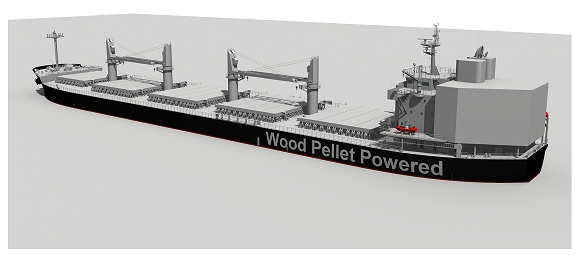
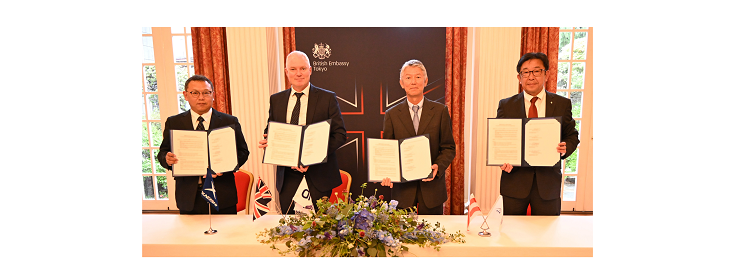
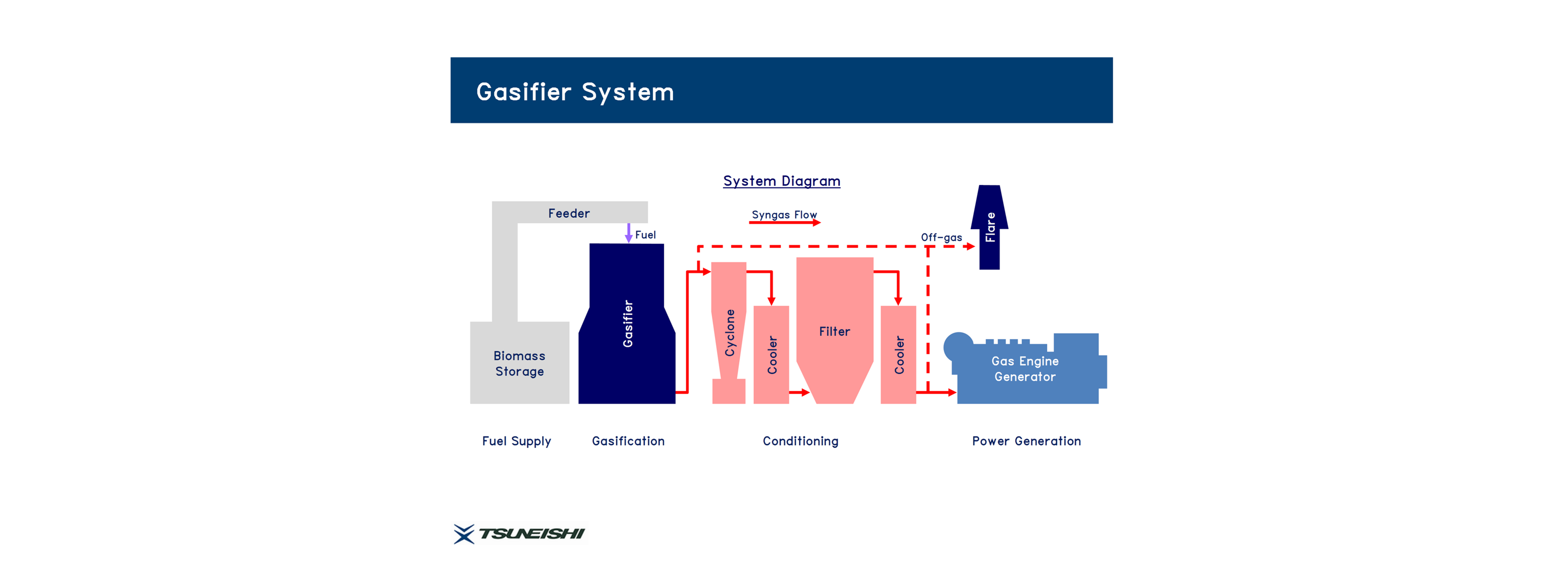

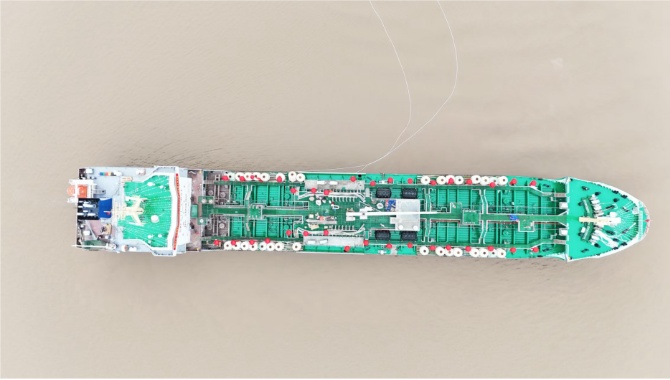 China Launches First Nationwide Methanol Bunkering
China Launches First Nationwide Methanol Bunkering 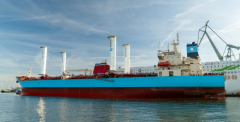 bound4blue completes first eSAIL® installation und
bound4blue completes first eSAIL® installation und  Deck-Capacity Pricing: Why the Forward-Superstructu
Deck-Capacity Pricing: Why the Forward-Superstructu 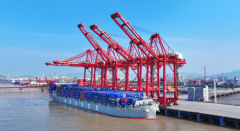 Ningbo Ocean Shipping Announces Order for Four 4,30
Ningbo Ocean Shipping Announces Order for Four 4,30 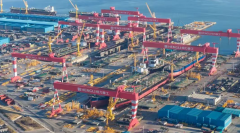 The "Norwegian King of Shipping" Orders Two VLC
The "Norwegian King of Shipping" Orders Two VLC  The opportunity has arrived. COSCO SHIPPING Special
The opportunity has arrived. COSCO SHIPPING Special